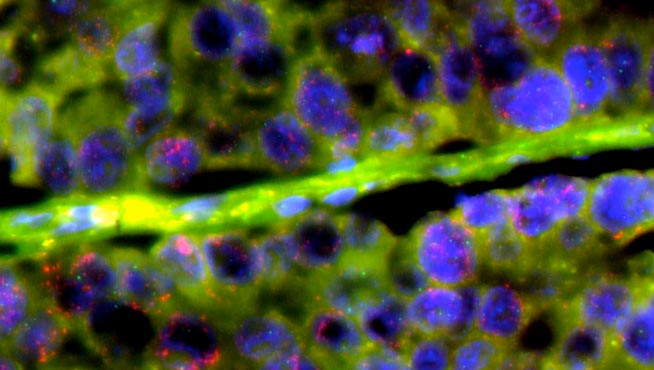Alberto Bardelli
Alberto Bardelli, a molecular geneticist and expert in the field of personalized therapies, has been the Scientific Director of IFOM since 2022. He also leads the Genomics of Cancer and Targeted Therapies and is Full Professor at the University of Turin.
After his undergraduate studies, Bardelli moved to the Ludwig Institute for Cancer Research in London where he obtained a Ph.D. in Biochemistry and Molecular biology from the University College London (UCL). He moved to the United States in 1999 for a post-doctoral fellowship in the laboratory directed by Bert Vogelstein at the Howard Hughes Medical Institute, Johns Hopkins University (Baltimore). Here Bardelli began studying the genomics of cancer. One of his most significant publications from that period identified for the first-time mutations in kinase genes (the kinome) that are associated with colorectal cancer.
As an independent investigator, he pioneered the combined use of genomics, patients’ avatars and liquid biopsies to accurately predict tumor response and resistance to targeted agents. Bardelli’s group showed that the analysis of circulating tumor DNA (liquid biopsies) allows monitoring tumor evolution and resistance to targeted therapies and was the first to pinpoint the emergence of KRAS/NRAS mutations in the blood of patients during EGFR blockade.
His recent publications pinpointed molecular mechanisms which sustain generation of neoantigens in colorectal cancer cells, and unveiled innovative approaches to increase response to immunotherapy. Notably, some of the most prominent strategies have been successfully tested in clinical trials in which his group provided preclinical support (AIRC 5x1000 program Metastatic disease: the key unmet need in oncology). His current work aims at uncovering pharmacological strategies to increase colorectal cancer antigenicity and to convert immune ‘cold’ into 'hot’ tumors (ERC Advanced Grant). Moreover, his group is researching new approaches to diagnose early metastatic tumors, eligible for a more tailored treatment (AIRC Investigator Grant), and is characterizing the molecular causes responsible of the onset of colorectal tumors in young individuals. His discoveries are published in over 250 scientific articles in international journals such as Nature, Science, Cancer Cell, Cell, Nature Genetic, Nature Medicine, Journal of Clinical Oncology, JAMA and Lancet Oncology. Prof Bardelli’s studies led to international clinical trials such as CHRONOS, PEGASUS and ARETHUSA. Since 2014 he has been in the ranking of the most cited researchers in the world "Web of Science".
Member of authoritative scientific associations such as EACS - European Academy of Cancer Sciences and EMBO - European Molecular Biology Organization, he was President of EACR - European Association for Cancer Research (2018-2020) and member of the Scientific Committee of the AIRC Foundation (2013-2023). In 2020 he was awarded the Guido Venosta Award assigned by AIRC and conferred by the Presidency of the Italian Republic for research aimed at developing new therapeutic approaches to neoplasms. He is Full Professor of Histology at the University of Turin. Since 2022 he has been appointed as Scientific Director of IFOM ETS – The AIRC Institute of Molecular Oncology, Milan.

